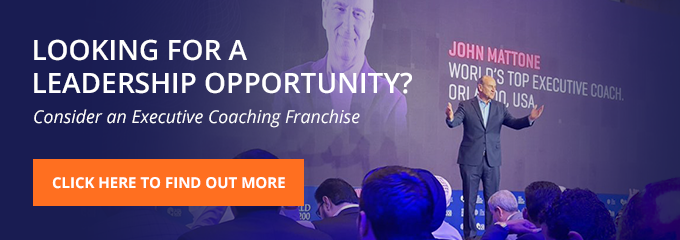October 17, 2022 |
Category: Blog, Intelligent Leadership
Indecisiveness is a weakness that can sneak up on the best and most respected leaders. Leadership coaching can help you make good decisions quickly. The key is to align your decisions with your inner values instinctively. So long as you know your values and understand them, you should find quick decision-making simple.
Indecisiveness is a hallmark of poor leadership. It hurts an organization on every level. It disengages employees, ruins morale, and causes frustration among leaders. In theory, we’re all quick to judge indecisiveness as the product of a weak mind, but there’s more behind leadership dithering, and it’s easy to fall victim to this leadership vice.

Indecision is a prominent leadership weakness.
Why Indecisiveness Is Tricky
Sometimes, leaders face nuanced decisions with many variables to consider. Indecision doesn’t surface in black-and-white choices. It’s usually the result of careful and tedious deliberation that’s exhausting and frustrating for leaders.
A leader may be aware that a supplier charges too much and raises the rates of the organization above the market, but the company has enjoyed a long relationship with that supplier, and there’s trust between the parties. The decision the leader must weigh is whether the organization can afford to lose competitiveness in exchange for retaining a trusted partner.
Emotions may factor into decisions as well, though emotional decision-making is a mistake and leads nowhere in the long term.
The Consequences of Leadership Indecisiveness
Regardless of its rationalization and source, the consequences of leadership indecisiveness are dire. According to many executive coaching professionals, indecision is, in itself, a decision. Indecisive leaders choose inaction over action, and that attitude comes at a great cost.
When there’s a significant problem in an organization, people know about it. They need their leaders to step up, analyze the problem, create a plan, and address the issue.
When leaders choose not to act on such problems, they send reports the message that they don’t consider it important. As a result, if their leaders don’t care, employees lose interest as well.
The damage dithering creates lasts a long time. Employees whose leaders fail to deliver on important problems lose confidence.
If leaders don’t make decisions, circumstances will. Allowing circumstances to set directions for organizations is a recipe for failure. Indecisive leaders are:
- Poorly informed
- Short on clarity
- Lacking confidence
- Unable to muster consensus
How Can Leaders Overcome Indecisiveness?
Leadership coaching understands the psychology of decision-making. A skilled executive coach can help leaders adopt a no-compromise attitude towards decisions. When they identify problems, they engage and solve them. Compromise, in this instance, would be to postpone decisions and leave problems simmering.
An effective way to combat indecisiveness is to decide immediately or set a solid deadline for a decision. As the saying goes, it’s better to make a good decision now than a great one ten minutes later.
Executive coaching can teach leaders how to develop gut instincts that allow them to make good decisions on the spot.
The Source of Your Quick Decision-Making Ability
The key to quick decision-making is your inner core. Your inner core is comprised of your values and whatever concept you have of self. Leadership coaching can develop your self-awareness, allowing you to understand your values and actively shape them. When you see your values and pair them with intentionality, making decisions becomes easier.

Never go against your values.
The rule of thumb would be to ensure your decisions always align with your values. When they don’t, consider a different approach.
Your Motives Shape Your Decisions
Self-awareness, emotional intelligence, and thoroughly understanding their organizations allow leaders to prioritize the interests of employees and organizations in their decisions.
Business coaching can ensure you understand the interests of your organization and why you want to pursue them.
These interests may act as extensions of your values. They allow you to avoid political decisions and those you may predicate on petty objectives like gaining popularity or exacting revenge.
Indecisiveness is a glaring leadership weakness, and it’s easy to condemn. Leadership coaching can help you do something about it.

Back to blog